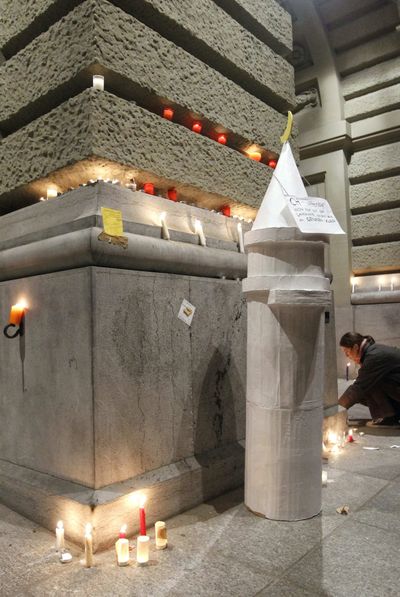Swiss approve Minarets ban
Backlash against Muslims on the rise

GENEVA – Swiss voters overwhelmingly approved a constitutional ban on minarets on Sunday, barring construction of the iconic mosque towers in a surprise vote that put Switzerland at the forefront of a European backlash against a growing Muslim population.
Muslim groups in Switzerland and abroad condemned the vote as biased and anti-Islamic. Business groups said the decision hurt Switzerland’s international standing and could damage relations with Muslim nations and wealthy investors who bank, travel and shop there.
“The Swiss have failed to give a clear signal for diversity, freedom of religion and human rights,” said Omar Al-Rawi, integration representative of the Islamic Denomination in Austria, which said its reaction was “grief and deep disappointment.”
About 300 people turned out for a spontaneous demonstration on the square outside parliament, holding up signs saying, “That is not my Switzerland,” placing candles in front of a model of a minaret and making another minaret shape out of the candles themselves.
The referendum by the nationalist Swiss People’s Party labeled minarets as symbols of rising Muslim political power that could one day transform Switzerland into an Islamic nation. The initiative was approved 57.5 to 42.5 percent by some 2.67 million voters. Only four of the 26 cantons or states opposed the initiative, granting the double approval that makes it part of the Swiss constitution.
Muslims comprise about 6 percent of Switzerland’s 7.5 million people. Many are refugees from the Yugoslav wars of the 1990s and about one in 10 actively practices their religion, the government says.
The country’s four standing minarets, which won’t be affected by the ban, do not traditionally broadcast the call to prayer outside their own buildings.